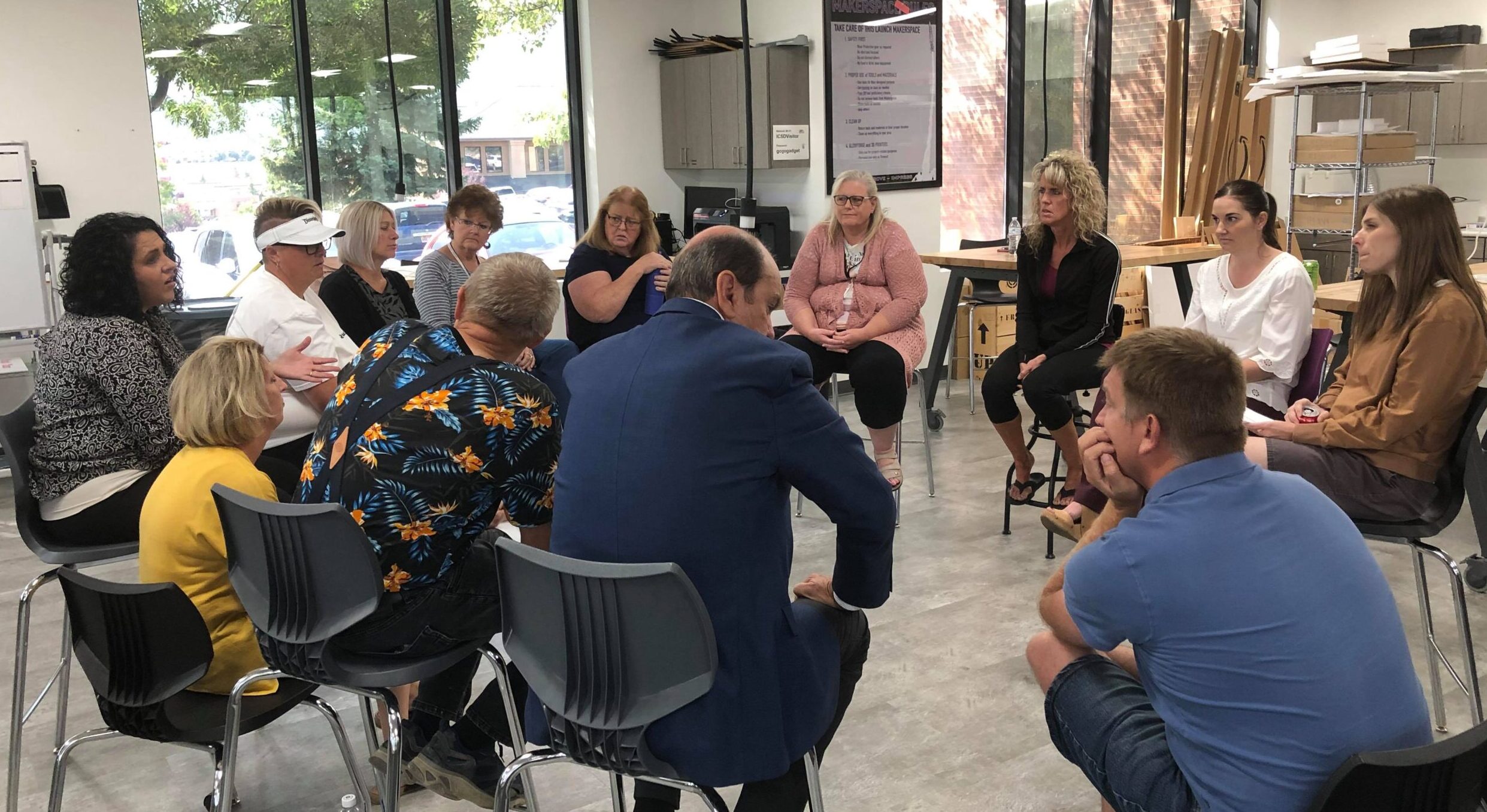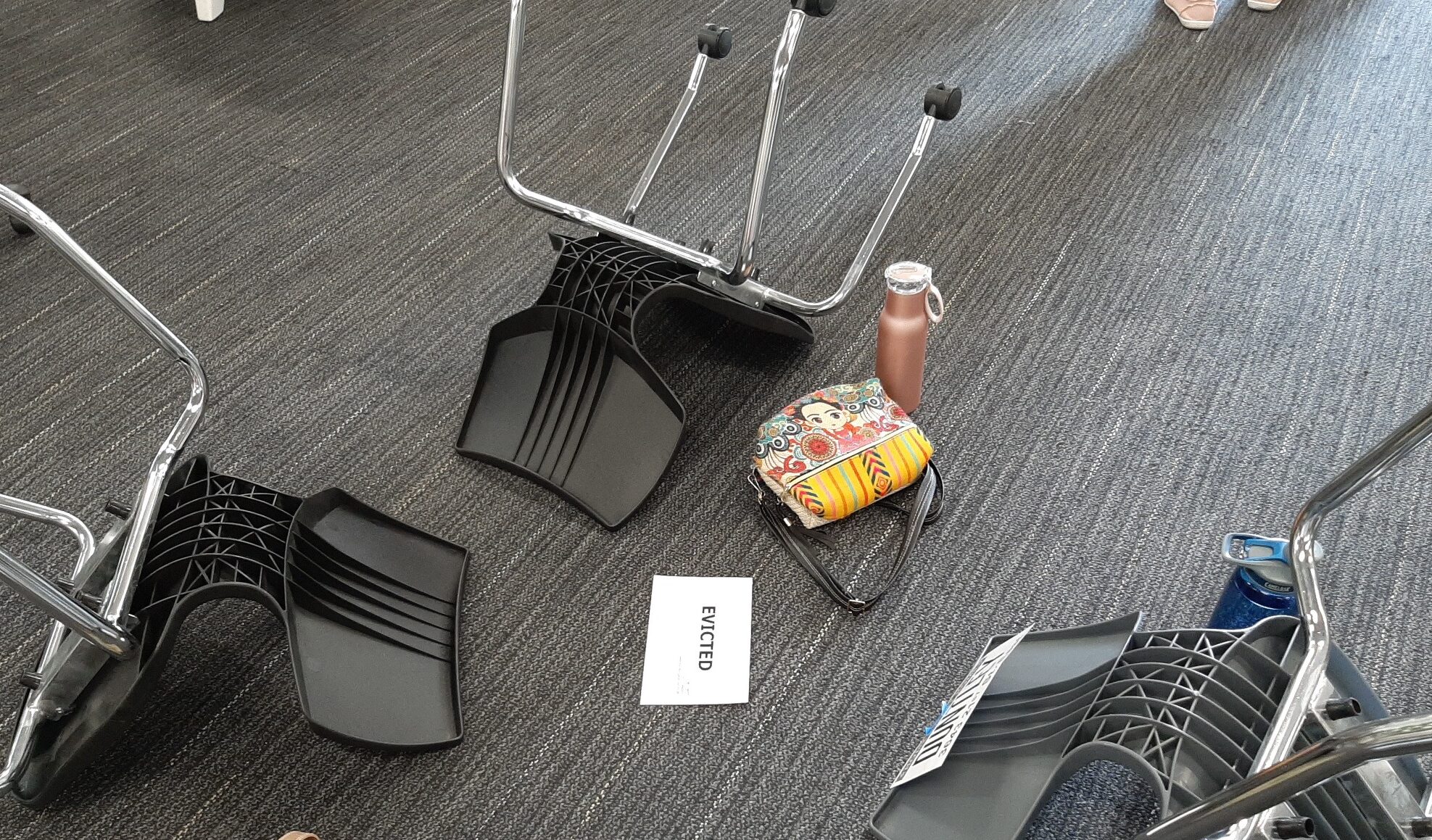
CEDAR CITY — Dozens of educators, along with several civic leaders and other community members, took part in a poverty simulation training exercise on Wednesday.

The four-hour session, which took place at Iron County School District’s Launch High School building, put the 60-plus attendees through scenarios designed to test whether they could successfully make it through a single month on a poverty-level budget.
Working as individuals or in small groups, the participants played various roles as they attempted to provide the basic necessities for themselves and their families, while dealing with day-to-day challenges.
Unexpected difficulties also arose. One group paid their $600 mortgage in cash only to be accused of non-payment, as they had no receipt as proof. Another group couldn’t pay any bills until the very end of the month, accruing substantial late fees as a result. In another scenario, a family saw a main source of income disrupted when one of the parents was arrested and jailed.
Another group ended up with $1,000 more than it was supposed to, due to an error made by a pawn shop owner giving change.
“Out of desperation to provide for the family, she just took the $1,000 and paid our mortgage and got us food,” participant Carter Wilkey recounted during the general debriefing session as he highlighted the moral dilemma presented by the scenario.
“It’s almost impossible to get ahead,” he said. “It was just non-stop one thing after another. Our getting ahead was (due to) somebody making a big mistake, but it was like the tension eased off our entire group.”

“That was one of the things that we talked a lot about: the difference between desperation and dishonesty,” Wilkey added.
“The simulation enables participants to look at poverty from a variety of angles and discuss the potential for change within their communities,” said event facilitator Clint Cottam, who is the executive director of Community Action Partnership of Utah.
Cottam said the simulation, initially developed by the Missouri Community Action Network, was designed to highlight various different types of poverty.
“Some are TANF (Temporary Assistance for Needy Families) recipients, some are disabled, and some are seniors on Social Security,” Cottam said, adding that the program is designed to help participants understand the realities of poverty and to help sensitize those who work with low-income families.
As many of Wednesday’s participants were educators, counselors and school administrators, much of the follow-up discussion focused on ways of helping schoolchildren in need.

Cottam said many of the teachers commented on how resilient their students can be.
“They may face instability at home or while living at Iron County Care and Share’s emergency shelter, yet many still show up to class in spite of the obstacles,” Cottam said. “It was great to hear how teachers can be more empathetic and supportive of students, knowing there is so much more that can be going on in students’ lives after the bell rings.”
One teacher commented that one of the biggest challenges is not knowing where to turn for help and what resources are available.
To that end, Cottam suggested dialing 211, a free, confidential hotline that helps connect people to needed services such as housing and utility assistance, food resources, legal aid, transportation, employment medical needs and more. Additionally, they may choose to visit the 211 Utah website or install the free 211 Utah app on their phone.
Copyright St. George News, SaintGeorgeUtah.com LLC, 2021, all rights reserved.